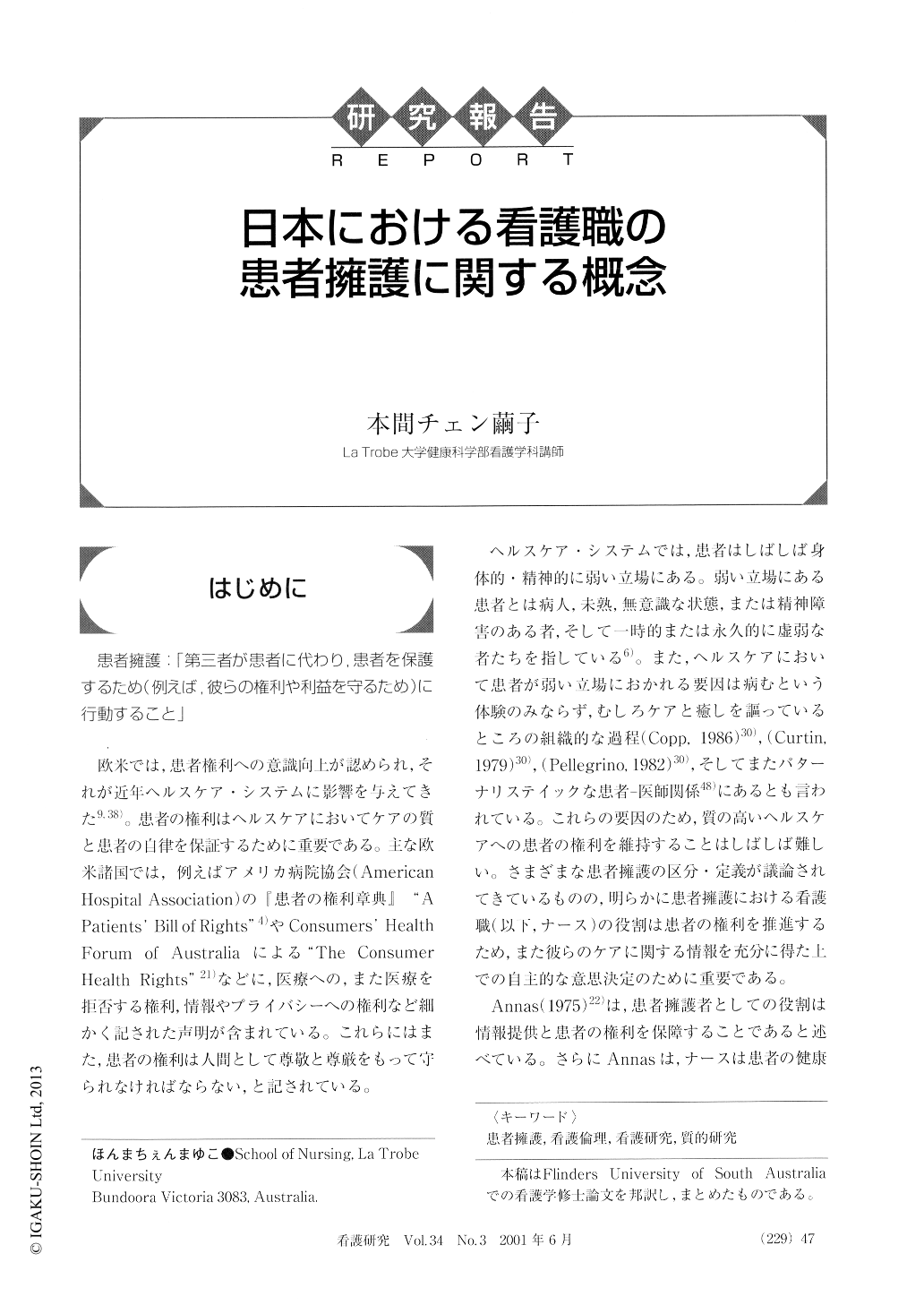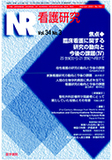Japanese
English
- 有料閲覧
- Abstract 文献概要
- 1ページ目 Look Inside
- サイト内被引用 Cited by
はじめに
患者擁護:「第三者が患者に代わり,患者を保護するため(例えば,彼らの権利や利益を守るため)に行動すること」
欧米では,患者権利への意識向上が認められ,それが近年ヘルスケア・システムに影響を与えてきた9,38)。患者の権利はヘルスケアにおいてケアの質と患者の自律を保証するために重要である。主な欧米諸国では,例えばアメリカ病院協会(American Hospital Association)の『患者の権利章典』“A Patients' Bill of Rights”4)やConsumers' Health Forum of Australiaによる“The Consumer Heahh Rights”21)などに,医療への,また医療を拒否する権利,情報やプライバシーへの権利など細かく記された声明が含まれている。これらにはまた,患者の権利は人間として尊敬と尊厳をもって守られなければならない,と記されている。
Patient advocacy is important to ensure patients' rights and autonomy in health care. In Japan, the practice of patients' rights is not encouraged due to complex cultural factors. Furthermore, the concept of patient advocacy is not clearly identified in Japan, and there is little evidence that nurses' perception of the concept of patient advocacy has been investigated. The aim of this study was to examine Japanese nurses' perceptions of patient advocacy and their role in it. This study also addressed comparisons between Japanese and western understandings and practice of patient advocacy. A qualitative case study approach was chosen as an appropriate method for the study. An interview framework was constructed as a result of a literature review and taped interviews were conducted with seventeen Japanese registered. Data were analyzed thematically and the results showed that the majority of nurses had heard about the term “patient advocacy”. Nurses identified a variety of perceptions of the concept “patient advocacy”, justifications for their practice as patient advocates, factors that influence nurses' practice of patient advocacy. Nurses' context-dependent practice of patient advocacy was the most remarkable finding of this study. There were differences between nurses' perceptions and practice of patient advocacy in Japan and western countries, and these may have stemmed from cultural influences on nurses' perceptions and practices of patient advocacy and a lack of nurses' knowledge both in patient advocacy and in patient care as a nursing professional. Japanese nurses were facing contradicting situations between eastern moral orientation as a Japanese and western ethical orientation such as the responsibility of the nursing profession. These raised critical issues of nosing education and professionalization of nursing in Japan. Recommendations for further research focusing on nursing education and modifications of the research method, as well as a continuous consideration of cultural factutors, were identified.

Copyright © 2001, Igaku-Shoin Ltd. All rights reserved.


